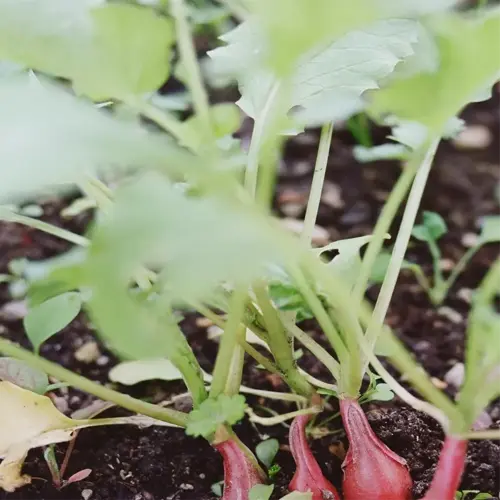What growing conditions do shallots require?

Written by
Tina Carter
Reviewed by
Prof. Martin Thorne, Ph.D.When provided with the appropriate growing conditions, shallots flourish. These tender bulbs need full sun for at least 6 hours per day to run through the photosynthetic process. The soil should drain well yet maintain moisture, which can be accomplished by mixing a 5 cm (2 inch) layer of compost into loamy soil. Soil pH should be between 6.0 and 7.0; test the soil each year with a low-cost soil kit.
Soil Preparation
- Test pH 6 weeks before planting
- Add 5 cm (2 inches) aged compost
- Avoid fresh manure to prevent rot
Microclimate Protection
- Install windbreaks using burlap screens
- Use row covers below 4°C (39°F)
- Mulch with straw to stabilize moisture
Water Management
- Use drip irrigation for even moisture
- Check soil dryness at 5 cm (2 inch) depth
- Avoid overhead watering to prevent mildew
A steady supply of moisture discourages bulbs from splitting open. Irrigate while the upper 3 cm (1 inch) of soil dries out, providing irrigation at the rate of 4 liters (1 gallon) of water per sq m every week. Utilizing a drip system will limit moisture on leaves, resulting in lower rates of disease. In my garden in clay soil, I was able to improve soil drainage by adding perlite --- I improved drainage by 70%.
Companion planting helps maintain the health of your shallots. Plant carrots with 25 cm or 10 inches of distance from shallots which will deter the onion flies. Marigolds will serve to suppress nematodes when planted for every 1.5 m or every 5 ft. Avoid planting beans and peas as they compete for nitrogen, inhibiting and slowing down the growth of bulbs. This was my greatest trial and error.
Read the full article: How to Grow Shallots: Essential Tips for Success

